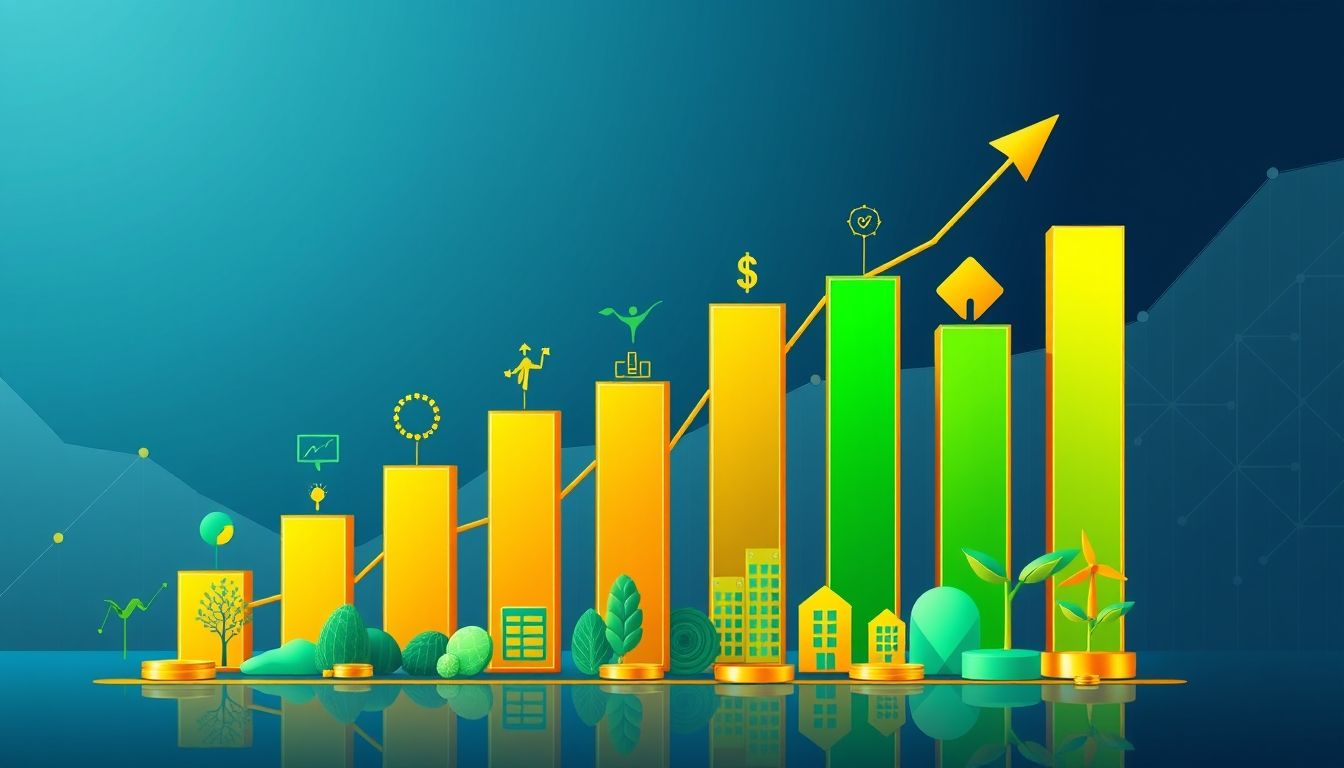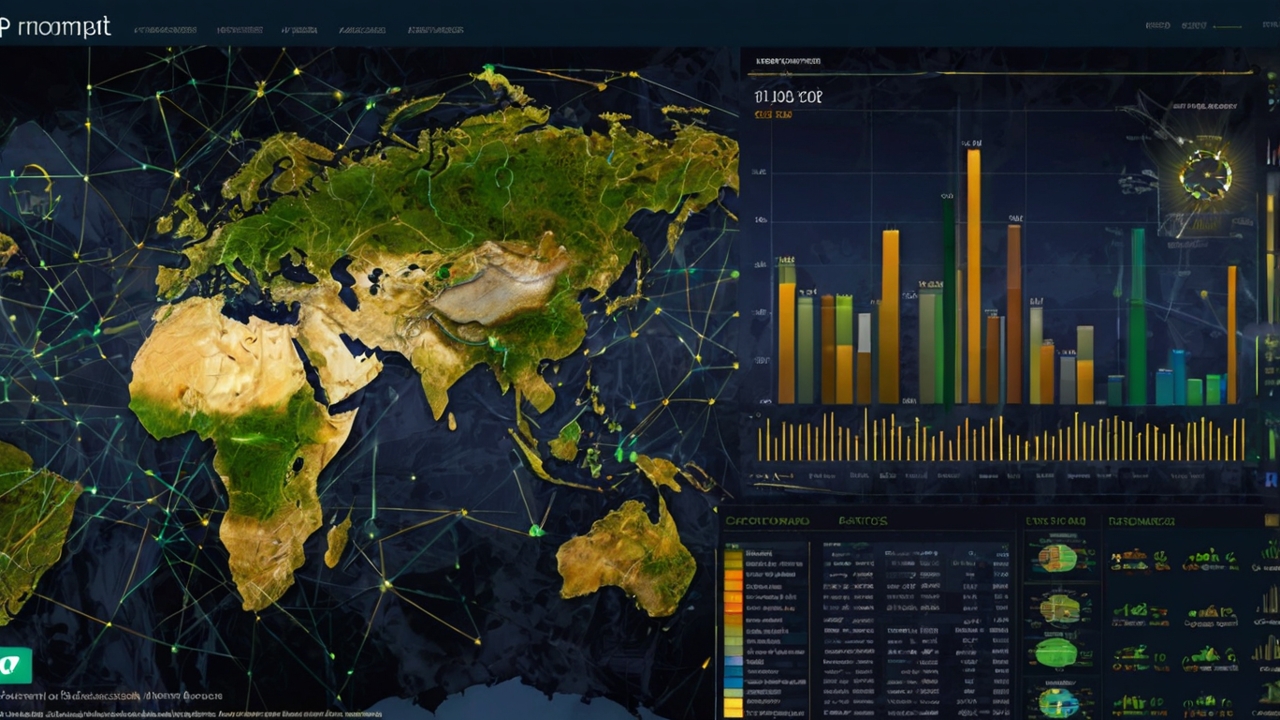ETFs in the Arab World: Growth Opportunities and Challenges
Exchange-Traded Funds (ETFs) have revolutionized the investment world, providing investors with an easy and cost-effective way to access a wide range of assets. While ETFs have gained immense popularity in developed markets, their adoption in the Arab market is still in its early stages. This article aims to explore the opportunities and challenges facing the growth of ETFs in the Arab region, highlighting the factors that can either boost or hinder their development.
1. What are Exchange-Traded Funds (ETFs)?
ETFs are investment funds that are traded on stock exchanges just like individual stocks. Each unit in an ETF represents a portion of a diversified portfolio of assets, such as stocks, bonds, and commodities. These funds allow investors to gain exposure to a broad range of assets in a single transaction, reducing risk and providing diversification.
Key Features of ETFs:
- Diversification: ETFs provide instant access to a diversified portfolio of assets.
- Liquidity: ETFs can be easily bought and sold on stock exchanges during trading hours.
- Transparency: ETF holdings are disclosed daily, allowing investors to know what they are investing in.
- Cost-Effectiveness: ETF management fees are typically lower than those of traditional mutual funds.
2. Current Status of the ETF Market in the Arab World
The ETF market in the Arab world is relatively small compared to other global markets. However, there is growing interest in ETFs from both individual and institutional investors. Some ETFs are available that track local and regional stock indices, as well as ETFs that provide exposure to global markets.
Examples of ETFs Available in the Arab Market:
- ETFs that track the Dubai Financial Market Index.
- ETFs that track the Saudi Stock Exchange (Tadawul) Index.
- ETFs that provide exposure to emerging markets.
3. Growth Opportunities in the Arab ETF Market
There are several opportunities that can drive the growth of the ETF market in the Arab world:
- Increased Awareness: Many investors in the region are still unaware of the benefits of ETFs. Education and awareness campaigns can help increase awareness and encourage adoption.
- Product Development: There is a need for more innovative ETFs that cater to the needs of local investors. These could include Sharia-compliant ETFs and ETFs that focus on specific sectors such as renewable energy or technology.
- Improved Market Infrastructure: Improving market infrastructure, such as increasing liquidity and reducing trading costs, can help attract more investors to the ETF market.
- Regulatory Support: Regulators can play a crucial role in promoting the growth of the ETF market by establishing a clear and transparent regulatory framework.
4. Challenges Facing the Growth of ETFs in the Region
Despite the opportunities, there are also several challenges facing the growth of ETFs in the Arab world:
- Limited Awareness: As mentioned earlier, awareness of ETFs is relatively low in the region.
- Limited Liquidity: Liquidity in some ETFs available in the Arab market is limited, which can make it difficult for investors to buy and sell shares in large quantities without affecting prices.
- Higher Costs: Trading costs and fees associated with ETFs may be higher in the Arab region compared to developed markets.
- Regulatory Restrictions: Some countries may impose restrictions on investing in foreign ETFs.
- Misconceptions: There are some misconceptions about ETFs, such as the belief that they are too complex or that they are only for institutional investors.
5. Sharia-Compliant ETFs
Given the importance of Islamic Sharia in the Arab world, Sharia-compliant ETFs have significant growth potential. These funds follow the principles of Islamic Sharia in selecting the assets in which they invest, making them attractive to Muslim investors looking for ethical and responsible investment options.
Characteristics of Sharia-Compliant ETFs:
- Investing in companies that do not operate in prohibited activities such as alcohol and gambling.
- Avoiding investment in financial instruments that rely on interest (riba).
- Adhering to permissible debt ratios in the invested companies.
6. The Role of FinTech in Promoting ETF Growth
FinTech can play a crucial role in promoting the growth of ETFs in the Arab world. Online trading platforms and smart apps can make investing in ETFs more accessible and easier for individual investors. In addition, Robo-advisors can provide personalized investment advice to investors based on their goals and risk tolerance.
7. Impact of ETFs on the Development of Local Capital Markets
ETFs can have a positive impact on the development of local capital markets in the Arab world. By increasing liquidity and attracting more investors, ETFs can help improve the efficiency of stock and bond markets. In addition, ETFs can encourage local companies to become more transparent and accountable, attracting more foreign investment.
8. Case Studies: Successful ETFs in Emerging Markets
We can learn a lot from the experiences of other emerging markets that have seen significant growth in the ETF market. For example, in India, ETFs that track the Nifty 50 index have contributed to increased participation of individual investors in the stock market. In Brazil, ETFs that focus on specific sectors such as agriculture and renewable energy have helped attract foreign investment.
9. Tips for Investors in ETFs in the Arab Market
If you are considering investing in ETFs in the Arab market, here are some tips:
- Do thorough research: Before investing in any ETF, make sure you understand its investment objectives, strategy, and risks.
- Compare available options: Compare different ETFs in terms of fees, performance, and liquidity.
- Consider diversification: Don't put all your money in one ETF. Diversify your investment portfolio by investing in a variety of ETFs and other assets.
- Be aware of costs: Consider all the costs associated with investing in ETFs, such as trading fees and management fees.
- Consult a financial advisor: If you are unsure how to invest in ETFs, consult a qualified financial advisor.
10. The Future of ETFs in the Arab World
Despite the current challenges, the future of ETFs in the Arab world looks promising. With increased awareness, product development, and improved market infrastructure, ETFs can become a popular investment tool for individual and institutional investors in the region. ETFs can contribute to the development of local capital markets and promote economic growth in the Arab world.
Disclaimer: This article is for informational purposes only and should not be considered investment advice. Investors should conduct their own research and consult a financial advisor before making any investment decisions.




